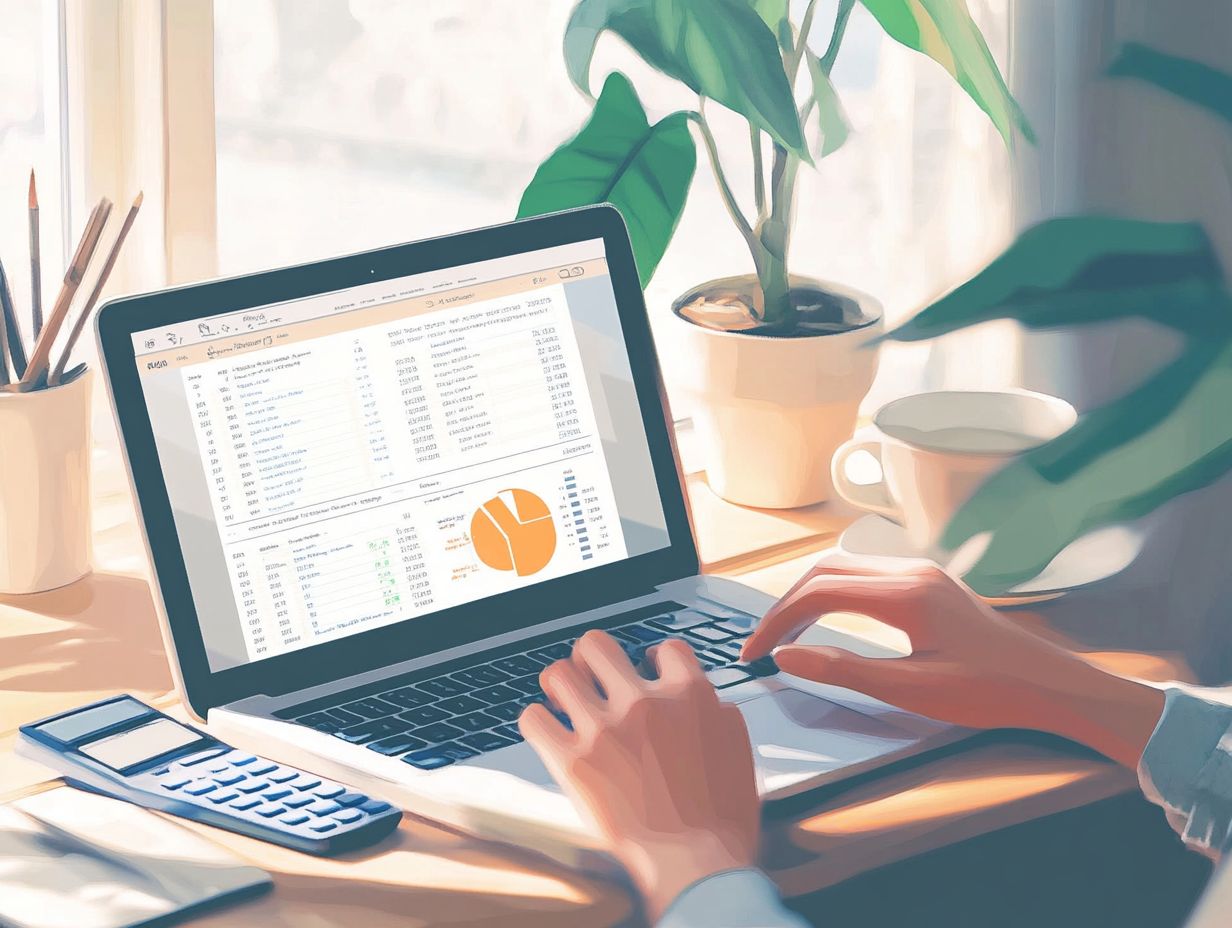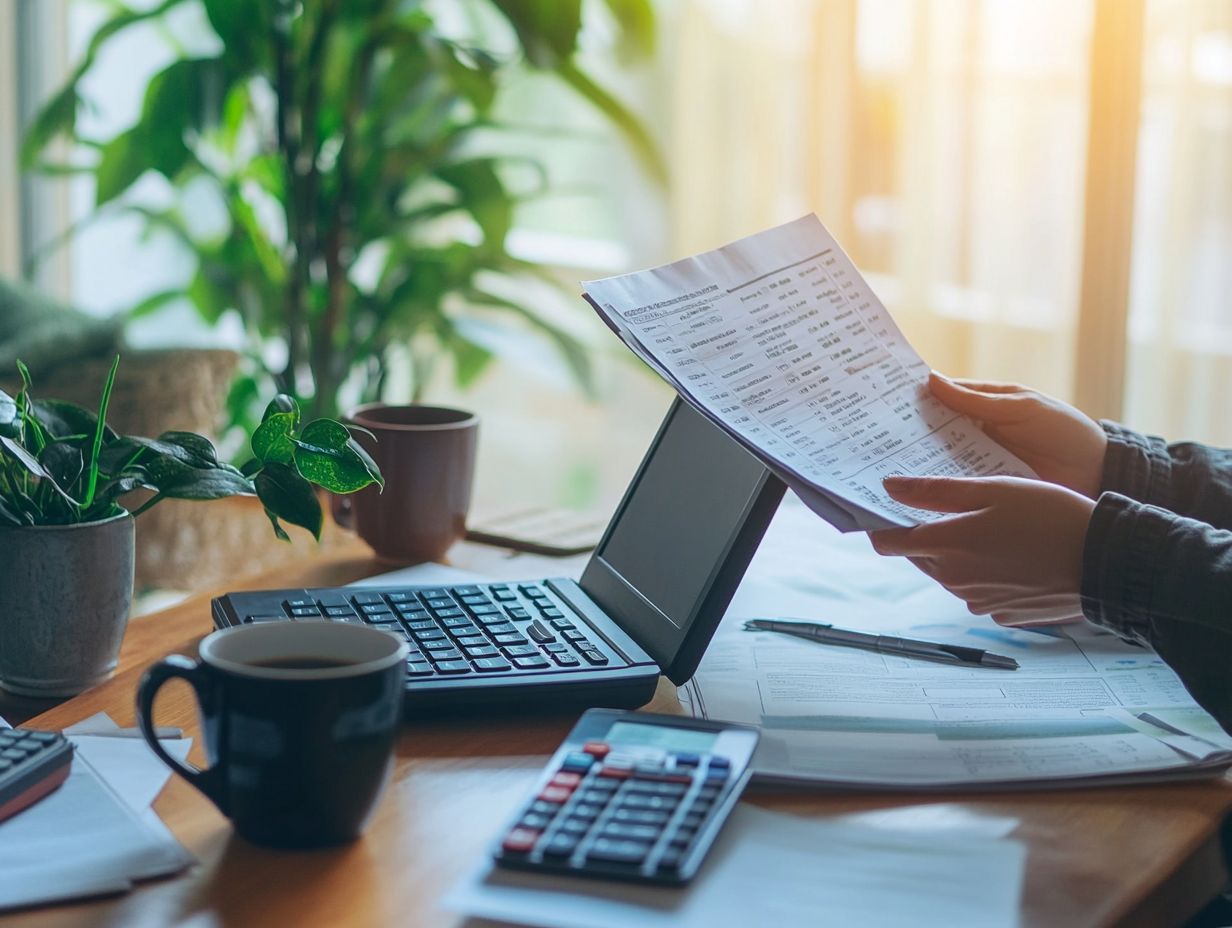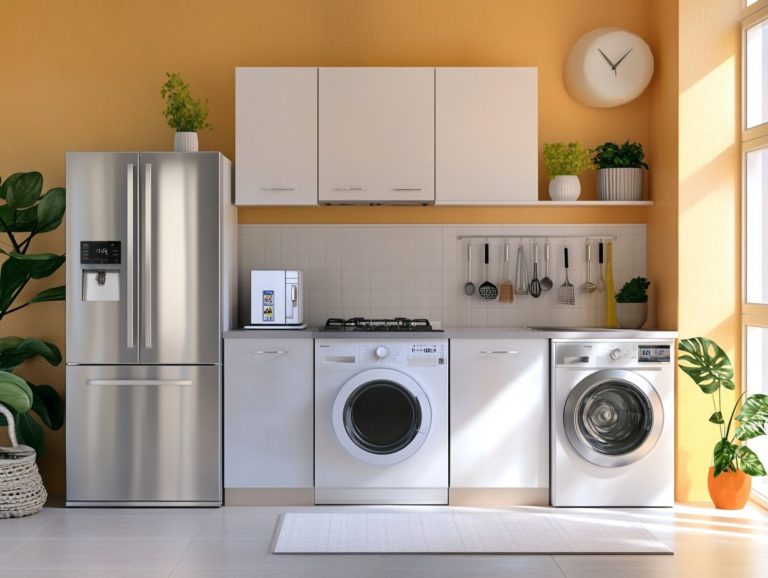Understanding Your Energy Bill After an Audit
Curious about how to trim those energy bills and enhance your home’s efficiency? An energy audit could be just the solution you’re looking for. Act now to start saving money and energy today!
This article delves into what energy audits involve, the benefits of pinpointing inefficiencies in your energy usage, and how to make sense of your energy bill.
You’ll also uncover common issues identified during audits, effective strategies for saving energy, and tools to monitor your energy consumption and savings.
Discover the path to a more sustainable and cost-effective home!
Contents
Key Takeaways:

Conducting an energy audit can help identify inefficiencies and save you money on your energy bill. Understanding key terminology on your energy bill is essential in identifying and addressing energy inefficiencies. For a deeper insight, understanding the cost-benefit of energy audits can guide you in implementing energy-saving strategies and tracking your energy usage, leading to significant savings on your bill.
What is an Energy Audit?
An energy audit is a careful process designed to evaluate the energy consumption of your home or business. It helps you identify inefficiencies and offers actionable recommendations.
This comprehensive assessment involves looking into your energy bills, analyzing billing patterns, and inspecting various components such as insulation, appliances, and lighting systems.
Through this evaluation, energy professionals can uncover potential energy-saving opportunities, ultimately leading to reduced expenses and improved energy efficiency.
By thoroughly examining how energy is utilized including factors like heating and cooling systems the audit effectively pinpoints areas where power usage can be minimized.
Auditors may deploy special cameras that detect heat loss from windows, doors, and walls. Their expertise enables them to present tailored solutions that enhance your comfort and significantly lower your carbon footprint.
This proactive approach is essential for homeowners or business managers seeking to make informed decisions. It transforms unexpected costs into clear savings while promoting a sustainable environment.
Why You Should Conduct an Energy Audit
Conducting an energy audit is crucial for anyone aiming to trim energy expenses and elevate overall energy efficiency in their home or business.
By pinpointing energy inefficiencies, you can take informed steps to reduce your utility bills and lessen your carbon footprint.
This proactive approach ensures significant savings and paves the way for a more sustainable lifestyle, allowing you to embrace renewable energy options and optimize your energy usage.
Benefits of Identifying Energy Inefficiencies
Identifying energy inefficiencies through an energy audit opens up a world of benefits, including substantial energy savings and improved energy management.
By gaining insights into how your energy usage affects your bills, you can make informed decisions about where to cut back and which upgrades are worth considering.
This ultimately leads to lower electricity rates and more precise billing information.
You ll often discover that tackling these inefficiencies not only slashes your monthly expenses but also enhances the comfort of your living environment.
For example, upgrading insulation or installing energy-efficient windows can reduce your heating and cooling costs by as much as 30%. Such investments deliver immediate savings and can boost your property s value, making it more appealing to potential buyers.
Energy-efficient upgrades can qualify you for tax credits or rebates, further sweetening the deal. Long-term energy management isn t just smart; it s a savvy financial move.
Interpreting Your Energy Bill

Interpreting your energy bill is essential for grasping your energy consumption and managing costs with precision.
By meticulously examining each section of the bill such as the account summary, billing details, payment due date, and specific charges like utility delivery and supply you can uncover valuable insights into your energy usage patterns and pinpoint opportunities for improvement.
This proactive approach enables you to make informed decisions that can lead to more efficient energy management and potential savings.
Get started on your energy audit today and start saving!
Understanding Key Terminology
Familiarizing yourself with essential terminology in your energy bill is crucial for mastering effective energy management.
Key terms like account number, payment stub, and total energy use are vital for interpreting your bill and accurately tracking your energy expenses. Understanding concepts such as billing cycles indicating how frequently your charges are calculated and usage graphs, which visually represent your energy consumption over time, is pivotal in uncovering patterns in your habits.
By grasping these elements, you can identify trends that enable you to make informed decisions about when to enhance efficiency or seize opportunities for savings. Delving into components like demand charges fees based on your highest energy use during peak times can provide deeper insights into how various factors influence your overall costs.
Common Issues Found in Energy Audits
Common issues uncovered during energy audits can provide you with invaluable insights into your energy usage and the potential for significant savings.
- Billing discrepancies
- Inefficiencies in energy consumption
- Excessive demand charges stemming from peak electricity usage
- Inaccuracies in meter readings that could unjustly inflate your energy bill
Addressing these issues can lead to tangible improvements in both your energy efficiency and your overall costs.
Identifying and Addressing Energy Inefficiencies
Identifying and addressing energy inefficiencies can enhance efficiency and reduce costs. Use energy-saving tips and explore assistance programs to make informed decisions that lead to effective management of your electricity consumption.
This will ultimately minimize renewable energy charges and improve your financial outlook.
To kickstart this process, conducting a thorough energy audit an assessment of how much energy your home or business uses is essential. This audit can uncover hidden inefficiencies. Engaging an expert can help you pinpoint issues like poor insulation or outdated appliances that drain energy unnecessarily.
Once you identify these inefficiencies, addressing them can be as straightforward as sealing leaks or upgrading to energy-efficient models. Not only will this cut costs, but it will also promote sustainable energy use.
Many local and federal programs offer financial assistance for renewable energy projects, providing you with an opportunity to further enhance your strategy for a greener, more economical future.
Making Changes to Reduce Your Energy Bill

Reducing your energy bill is a smart move for your finances! It’s also a crucial step towards a sustainable future.
Embrace energy efficiency measures, consider demand-based plans, or transition to fixed-rate electricity options with the assistance of energy brokers to improve your energy consumption and unlock significant savings.
Implementing Energy-Saving Strategies
Implementing energy-saving strategies is a powerful way for you to manage your energy consumption and gradually lower your energy bills. By collaborating with energy professionals, you gain access to tailored energy assistance that improves your electricity rates, ensuring effective energy management that meets your specific needs.
Along with seeking expert guidance, upgrading to energy-efficient appliances is a crucial step you can take to significantly reduce your power usage. Many households experience the benefits of transitioning to appliances that consume less energy while still delivering impressive performance, leading to substantial savings on monthly bills.
Embracing smart home technologies further enhances your energy efficiency. These systems enable real-time monitoring and control of your power consumption, enabling you to make informed decisions with ease.
By combining these strategies, you not only contribute to sustainability efforts but also enjoy a more cost-effective and efficient lifestyle.
Tracking Your Energy Usage and Savings
Tracking your energy usage and savings is essential for gaining insights into your consumption patterns and evaluating the success of your energy-saving strategies.
By leveraging your consumption history, analyzing usage graphs, and reviewing fluctuations in electricity rates, you can make informed decisions that help you optimize your energy expenses effectively.
Tools and Methods for Monitoring Energy Consumption
Using tools and methods to monitor your energy use can significantly boost your savings. Smart meters and energy monitoring apps help you track consumption and communicate effectively with your utility company.
These technologies provide insights into your daily energy habits. You can identify peak usage times and receive personalized suggestions to cut waste.
Smart meters offer real-time feedback, enabling quick adjustments. Many energy apps also include fun features that encourage you to save energy.
Your utility company plays a vital role in this process. They offer tools and resources to help you understand energy efficiency better.
Frequently Asked Questions

What is an energy audit?
An energy audit is a detailed check of your energy use and costs, usually done by a professional. This process looks at your bills, appliances, insulation, and structure to find ways to save energy and money.
Why should I get an energy audit?
An energy audit helps you understand how you use energy and find ways to cut costs. It can also reveal potential issues with your systems, leading to better efficiency.
What happens after an energy audit?
After an audit, you’ll get a report with findings and recommendations. This report suggests upgrades or changes to boost efficiency and outlines potential savings.
What can I expect to see on my energy bill after an audit?
You might notice changes on your energy bill if you implement any recommendations. Look for lower energy usage and costs, as well as a clearer breakdown of your expenses.
What if I do not see any changes on my energy bill after an audit?
If your bill hasn’t changed, it may be because you haven’t acted on the recommendations. It’s essential to follow through on those suggestions to see results.
How often should I get an energy audit?
Think about getting an energy audit every 3 to 5 years or after significant changes, like renovations or new appliances. Regular audits help you manage energy use and prevent bigger problems down the line.






